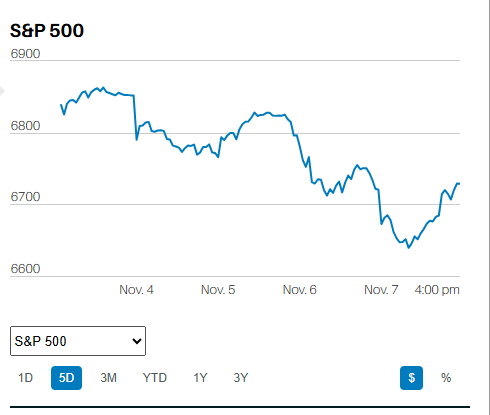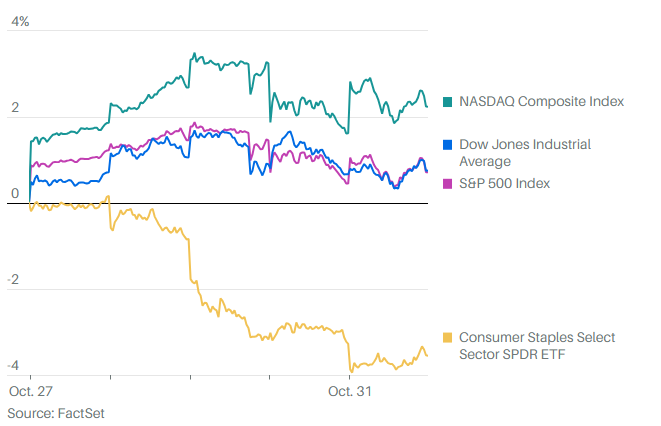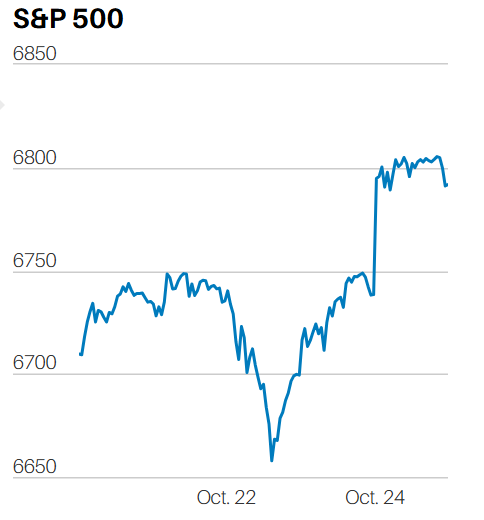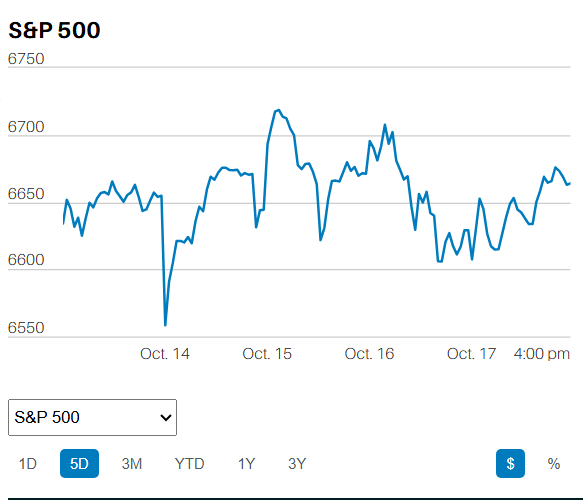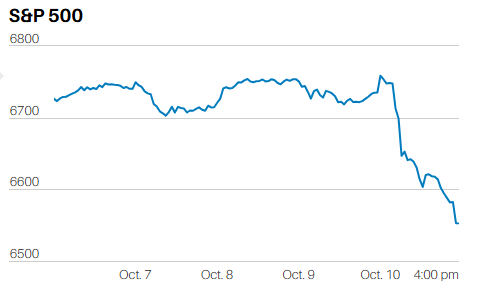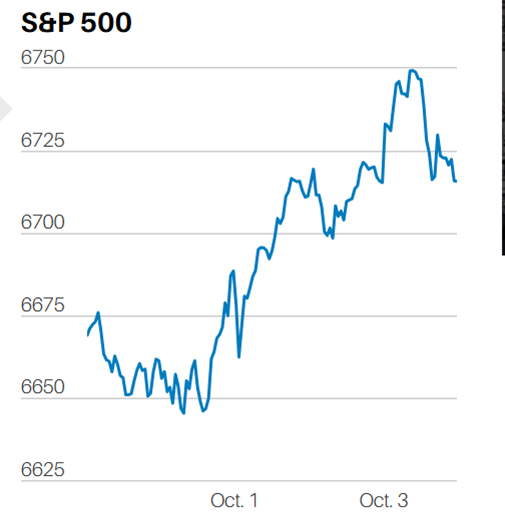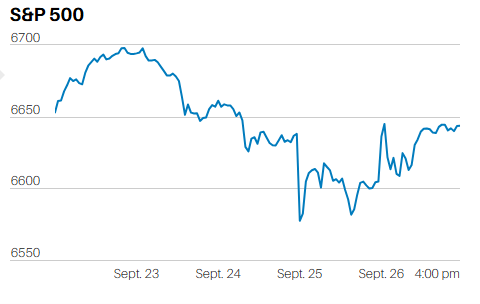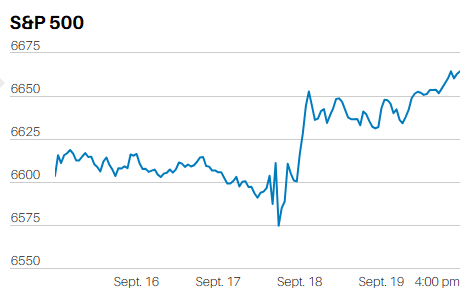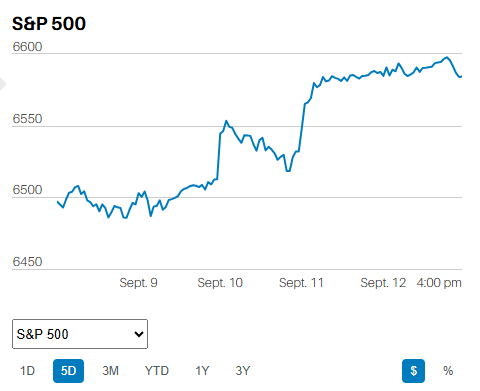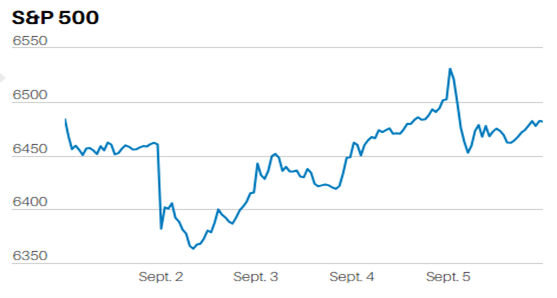Retirement planning mistakes

Market Update
The S&P 500 gained 6.6% last week to finish at 4158.24. It was the first weekly gain after seven weeks of losses. The Dow gained 6.2%, ending an eight-week decline. The Nasdaq rose 6.9% also ending a seven-week losing streak. The sharp bounce is most likely another bear market rally. We wrote two weeks ago to expect a bounce to resistance at 4100-4200. The S&P subsequently topped out at 4090.72 before falling to a new low of 3810.32. Notably, last week took out the prior week’s low and high, an ambiguous outcome. Still, the odds favor additional upside testing this week.
The market was oversold after seven straight weekly declines. Bargain hunters are likely to buy the market a while longer. Yet, sellers wait overhead, and the selling will increase the higher the market goes. It is unlikely the S&P will make it through the resistance on either side of 4200. More likely it fails and heads back down for a retest of the 3810.32 low in the next few weeks. On the other hand, clearing 4307.66 opens the door to more upside in the coming weeks.
- The supposed catalyst for the buying was the Fed meeting minutes. The May Federal Open Market Committee minutes showed the Fed was committed to half-point rate increases in June and July. The committee left open the possibility of smaller hikes, or none at all, after the July meeting. The fed-fund futures had reduced the odds of a 3% federal-funds rate by year-end to 35% from 60% by Friday. It would seem that investors are pricing in fewer rate hikes and receding inflation if the meeting minutes actually were the catalyst. It is far from certain that is the case. Markets don't move in straight lines. The algorithms may have simply decided it was time for a counter-trend.
Alan Ruskin of Deutsche Bank doesn’t think the 10-year Treasury at 2.74% and the S&P 500 at current levels is enough to cause inflation to decline back toward 2%, according to Barron’s. He believes the Fed will have to raise more than is currently priced in to push inflation meaningfully lower. Risk assets including stocks will suffer if that is the case. Ed Yardeni of Yardeni Research chimed in last week, raising the odds of a recession from 30% to 40%, although he didn’t specify the timing.
Norwood Economics isn’t forecasting a recession in 2022. We do think a recession in 2023 is increasingly likely, but not until the second half of the year. It will depend on whether the Fed follows through with the promised rate hikes. It will also depend on whether the Fed follows through with Quantitative Tightening (QT), which is likely the bigger factor. QT has only happened in the U.S. one other time. The Federal Reserve started to reduce its balance sheet in 2017 but stopped in January 2019. It likely stopped because the stock market fell almost 16% over a three-week period in December of 2018. QT along with continued interest rate hikes will likely lead to a recession and bear market in 2023…if the Fed sticks with its QT plans.
Economic Indicators
New home sales dropped to 591,000 in April from 709,000 the prior month. New home sales lead existing home sales. Pending home sales were down 3.9% in April after falling 1.6% the prior month. The impact of rising interest rates on the housing market is worth keeping an eye on. The housing market is one of the most interest-rate sensitive parts of the economy and a leading indicator.
The job market is strong. Initial jobless claims fell to 210,000 from 218,000. Consumer spending is strong. Excess covid savings are still available to spend. The economy is slowing down but is not showing signs of a recession yet.
The core personal consumption expenditure (PCE) index was 4.9% in April down from 5.2%. The Fed favors the core PCE to track inflation. The core PCE rose by 0.3% for the third month in a row. Meanwhile, the PCE, which includes food and energy, rose by 0.2% in April, its smallest increase in a year and a half. Strong consumer spending and inflation starting to subside should allow us to avoid a recession in 2022. It should also keep the stock market from falling too much further.
Investing and Financial Planning
I was talking with a client last week. She let me know that one of my newsletters had angered a 401(k) participant. I often write about real conversations I have with clients and prospects. I do so in an effort to help people make better investing and financial planning decisions.
In this case, I wrote about an initial financial planning session I had with a 401(k) participant and her husband. The gist of the article was that they weren’t giving themselves much margin for error. I pointed out a few of the problems I saw with their financial plan. My goal in writing the article was to help people be more aware of the mistakes that can prevent them from having a comfortable retirement. My apologies to the 401(k) participant for upsetting her. It wasn't my intention.
But since we are on the topic of financial planning mistakes…
Below is a partial list of common mistakes:
- No retirement planning. Many people don’t do the math. They basically wing it.
- One-time retirement planning. Often people who do initial retirement planning never update the plan. Instead, they rely on planning that was done years ago rather than updating their plan periodically.
- Optimistic assumptions. Many people assume everything will go exactly as planned, including investing results. Life rarely is so accommodating. It is better to plan conservatively.
- Taking social security too early. The math shows that most people should plan retirement to take social security at age 70. Only 5% of Americans actually wait until they’re 70. The social security benefit is important longevity insurance. The check keeps coming regardless of how old you are. You’ll receive at least 124% of the full retirement benefit if you wait until age 70. It can mean tens of thousands of additional dollars during your retirement.
- Relying on their children to provide long-term care if needed. “Our children love us. They’ll take care of us if needed” is something I hear all too often. Children may not have the financial wherewithal. They may not have the time or be able to handle the stress. Yet many couples just assume their children will bail them out if they need long-term care.
- Waiting until close to the desired retirement date before doing any retirement planning. You should plan decades in advance so that there is time to make changes. There isn't much you can do to impact a retirement the year before you retire.
- Failing to do estate planning or failing to keep documents updated. Everyone should have a current Will, Durable Power of Attorney, and health representative form.
Deciding when you’re going to retire is one of the most important decisions you’ll make in your lifetime. Winging it isn't the way to go. Instead, careful planning begun years in advance is appropriate. Updating your retirement plan yearly is appropriate. Adjusting your plans when life calls for it is appropriate. Give retirement planning the attention it deserves, and you'll be happy you did.
Regards,
Christopher R Norwood, CFA
Chief Market Strategist
